|
As we celebrate Father’s Day this weekend, many of us will feel grateful for dads’ presence in our lives and also for their good health. Vanderbilt University scholars Derek Griffith and Elizabeth Stewart, who study men’s health, take this opportunity to explain to us that fathers’ health is not something to take for granted.
In fact, their recent research reveals that fatherhood can sometimes detract from good health. While fathers want to be healthy, they often ignore their health needs, the scholars suggest. Why? Many see their ability to hold down a well-paying job as the most important thing they do for their families. As a result, they often fail to eat healthfully, exercise and see doctors when they should.
Also today: why divorced dads often feel ignored by their kids’ schools, a newly discovered species of bacteria that lives in seaweed, and how the U.S. Defense Department contributes to climate change.
|
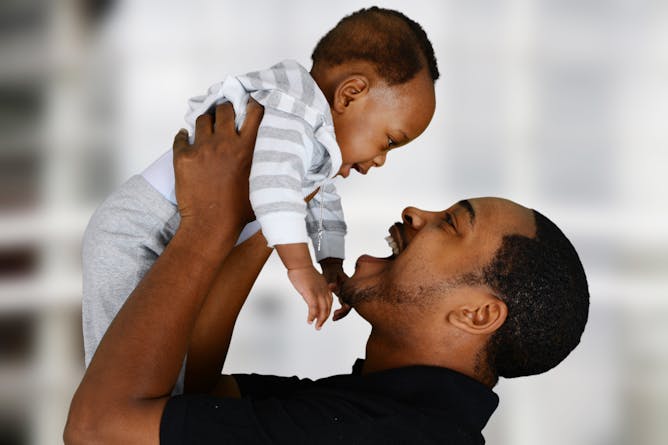
Fathers often place more emphasis on their role as head of household than their health.
Marmion/Shutterstock.com
Derek M. Griffith, Vanderbilt University; Elizabeth C. Stewart, Vanderbilt University
As the nation prepares to celebrate fathers, two experts ask whether dads are making their health a priority. Evidence suggests not. Pressures to provide income often hold fathers back.
|
This week’s highlights
|
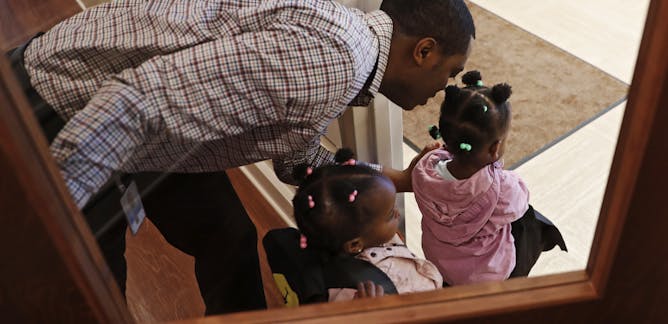
Jessica Troilo, West Virginia University
When children don't live with their fathers, educators often act as if the men don't exist, an expert on child development laments in an essay about why schools must do more to recognize dads.
| |

Samantha Mascuch, Georgia Institute of Technology; Julia Kubanek, Georgia Institute of Technology
Researchers have just discovered a new species of bacteria that cranks out a deadly toxin. In a common arrangement in the marine environment, a slug and alga both use this toxin for their own defense.
|

Neta C. Crawford, Boston University
Many current and former US military leaders call climate change a serious national security threat, but few of them mention the Defense Department's big carbon footprint.
| |

Tristan Bridges, University of California, Santa Barbara; Mignon R. Moore, Barnard College
According to the General Social Survey, the percentage of men and women who identify as gay or lesbian has held firm. But the share of women who say they're bisexual has skyrocketed.
|
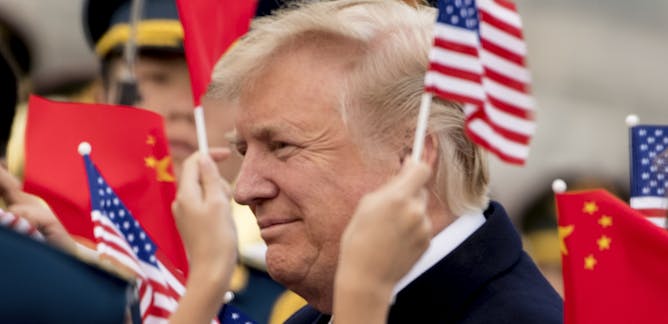
Amitrajeet A. Batabyal, Rochester Institute of Technology
Trump may find it harder to maintain support for his escalating tariffs on China if the US economy shows further signs of weakness.
| |
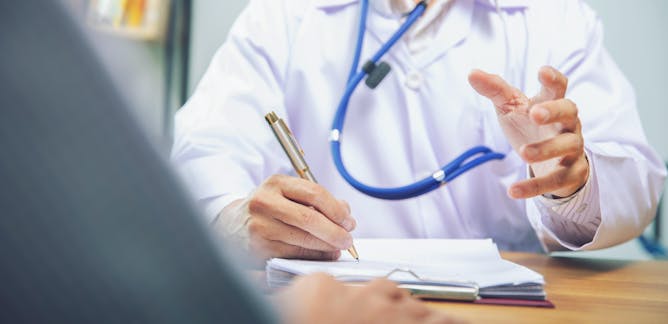
Camilla Nonterah, University of Richmond
Although certain racial minorities are more likely to be diagnosed with organ failure, they are less likely to be transplanted. What's behind the gap?
|

Sean Rehaag, York University, Canada
Unlike prior waves like the enslaved people on the Underground Railroad or Vietnam-era war resisters, they are children whose parents fear deportation after spending years in the United States.
| |

Luis Gómez Romero, University of Wollongong
Mexico says it emerged from tariff negotiations in Washington with its 'dignity intact.' But that dignity comes at great cost to the migrants fleeing extreme violence in Central America.
|

Sarah Catherine Nelson, University of Washington
New research investigated who uses the wide array of tools available to people who've received their own raw genetic data and want to maximize what they learn from it.
| |
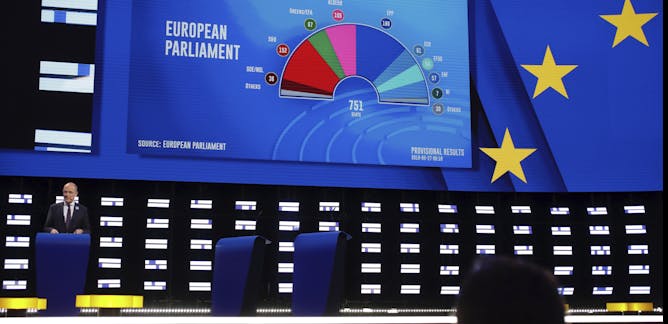
Liisa Past, Arizona State University
Though the effects were less this time, voters across the globe should remain vigilant against disinformation campaigns and election system hacking.
|
|
|